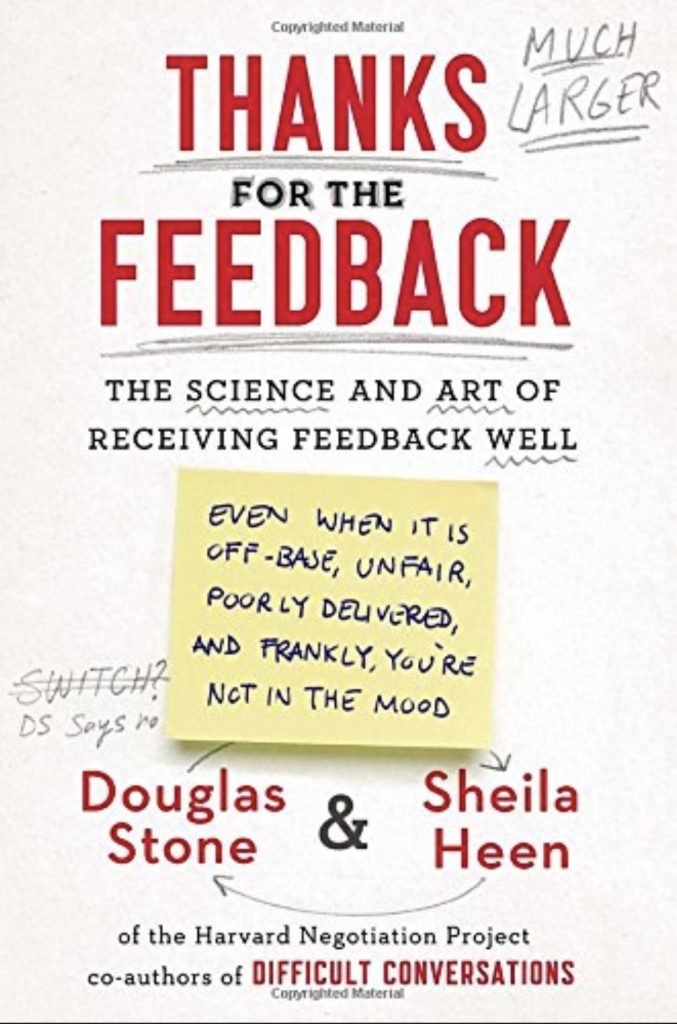Two of the authors of the book “Difficult Conversations” also published a book called “Thanks for the Feedback: The Science and Art of Receiving Feedback Well (Even When It Is Off Base, Unfair, Poorly Delivered, And, Frankly You’re Not In The Mood).” Even if the brilliant title is not enough to draw you in, the findings are worth considering.
The authors contend that receiving feedback well is critical to healthy relationships but is difficult to achieve. This is because of the conflict between our desire to learn and grow and our desire to be accepted as we are right now. Why is this important for advocates in mediation?
The authors contend that learning how to receive feedback well is essential to improving your skills of delivering feedback. Both skills are critical to negotiators in mediation. When we receive negative feedback, our natural instinct is to defend ourselves. When the other party criticizes your legal position, you defend it — often without evaluating the criticism objectively.
One of the values of mediation is, hopefully, that it provides a space to listen to and consider feedback. As one of the authors said in describing the value of receiving feedback well is to “determine whether the feedback is off base versus just poorly delivered?” In mediations I often ask the parties to consider (really think about) why the other side sees the case differently. Are your facts wrong? Are theirs? Are perception issues or cognitive biases influencing the narratives? Is the law subject to more than one application? You cannot really evaluate the case without understanding the other side and this requires receiving their feedback well.
So, how do you become a better feedback receiver? According to Sheila Heen, one of the authors, in an interview with the Harvard Program on Negotiation, you need to understand the triggers. “Me, We, See.” Here is Professor Heen’s advice on becoming a better feedback receiver.
ME: We are all wired differently – some people feel very uncomfortable with positive feedback, others are particularly sensitive about negative feedback. There are huge variations on how we swing, both positive and negative, and how long it takes us to recover. This is completely normal.
WE: Your reactions to the person who is giving you the feedback will color your reaction and may make you dismiss the feedback entirely. The lesson here is that while you may have issues with the “who,” don’t let it pre-disqualify the “what” of the feedback.
SEE: All of us have blind spots. The challenge of understanding the feedback we get is compounded by the fact that feedback often comes with incredibly vague labels—for example, “be more proactive.” We get so upset in the moment, that we don’t actually pause to understand: 1) Where is this coming from? What’s the data behind it? 2) Where is it going? What is it that you want me to do differently? We assume that we understand the feedback we get, when in fact it takes a lot more effort and skill to unpack what’s under that vague label.
You can always glean something useful from feedback. Getting good at receiving doesn’t always mean that you have to take it. Rather, it means that you need to fully understand it before you decide what to do with it.
Sheila Heen
Previous posts have described how becoming a better listener will make you a better negotiator and the importance of being curious and understanding the other side. This important work from the Harvard Negotiation Project provides valuable lessons on how to do that.



